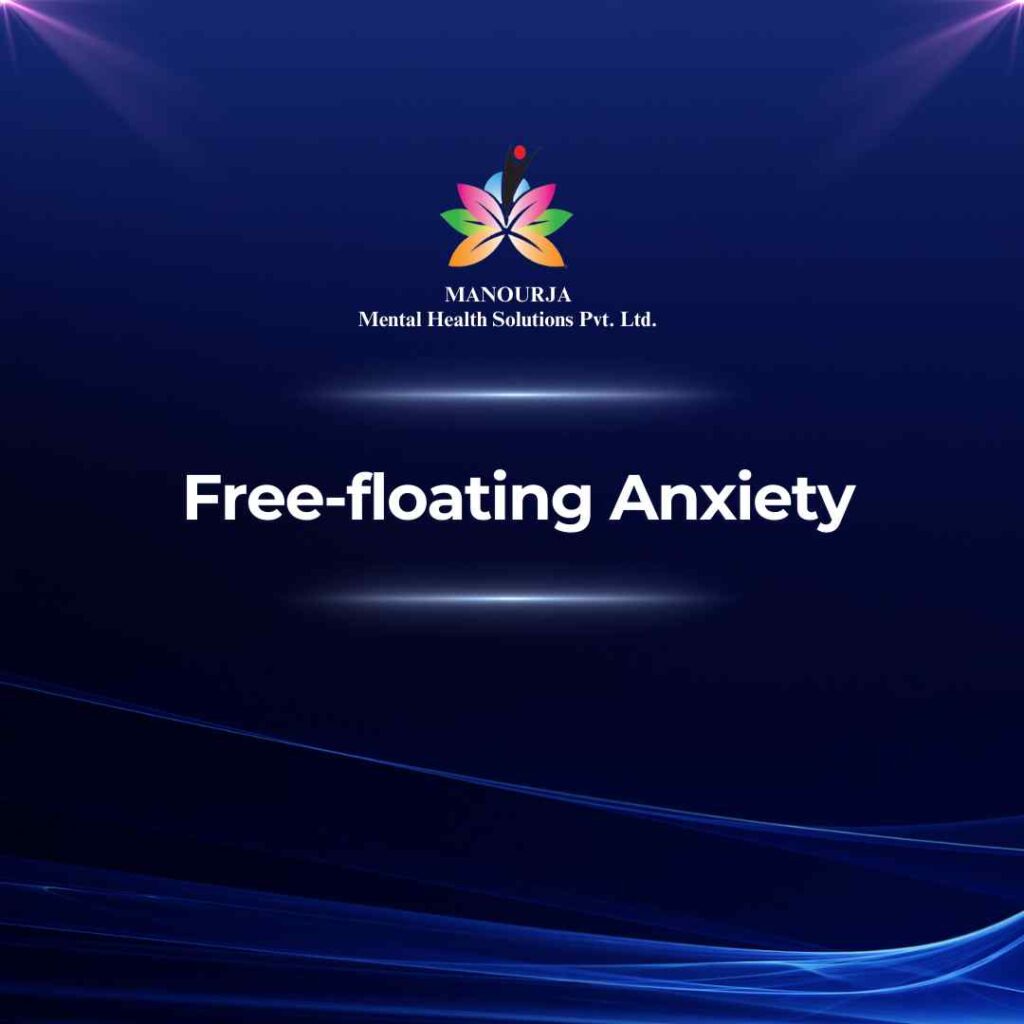Free-Floating Anxiety

Free-floating anxiety refers to a persistent, generalized feeling of apprehension or unease without a specific trigger or cause. It is characterized by a sense of worry or dread that is not necessarily tied to any particular situation or object.
Free-Floating Anxiety as a Sign and Symptom
Free-floating anxiety can be a feature of several mental health conditions, including:
- Generalized Anxiety Disorder (GAD): This disorder is characterized by excessive and uncontrollable worry about various aspects of life, such as work, health, or relationships. Individuals with GAD often experience free-floating anxiety as a pervasive sense of unease that persists over time.
- Panic Disorder: Although panic attacks are more acute episodes of intense fear or discomfort, individuals with panic disorder may also experience free-floating anxiety between episodes. This ongoing anxiety contributes to anticipatory anxiety about future panic attacks.
- Social Anxiety Disorder: People with social anxiety disorder may experience free-floating anxiety related to social interactions or performance situations, even when not in specific triggering contexts.
- Post-Traumatic Stress Disorder (PTSD): Individuals with PTSD may experience generalized anxiety that is not necessarily tied to specific trauma reminders but reflects a heightened state of arousal and hypervigilance.
Mechanism
The mechanisms underlying free-floating anxiety involve dysregulation of neurotransmitters (such as serotonin and norepinephrine) and heightened activity in brain regions involved in threat perception and emotional processing. Genetic predisposition, environmental stressors, and life experiences can also contribute to the development of free-floating anxiety.
Treatment
Treatment for free-floating anxiety typically involves a combination of therapies, including:
- Cognitive Behavioral Therapy (CBT): Helps individuals identify and change patterns of negative thinking and behaviors contributing to anxiety.
- Medications: Such as selective serotonin reuptake inhibitors (SSRIs) or benzodiazepines may be prescribed to alleviate symptoms.
- Mindfulness and Relaxation Techniques: Techniques such as mindfulness meditation or progressive muscle relaxation can help manage anxiety symptoms.
Conclusion
Free-floating anxiety is characterized by pervasive feelings of apprehension or unease without a specific trigger, and it can occur in various mental health conditions such as generalized anxiety disorder, panic disorder, social anxiety disorder, and PTSD. Recognizing and addressing free-floating anxiety is essential for effective treatment and management of these disorders.
At MANOURJA, we believe in the transformative power of counseling. Our experienced therapists offer a safe and supportive space where you can explore your thoughts, emotions, and challenges. Through personalized counselling sessions, we’ll work together to develop coping strategies, build resilience, and achieve lasting positive change. Discover the path to a healthier, happier you with MANOURJA counselling services.
MANOURJA Rehabilitation Services
At MANOURJA, we’re dedicated to helping you in rebuild your life, after difficult times. Our rehabilitation services focus on understanding what you need to move forward, whether you’re recovering from addiction, trauma, or any psychological – social challenges. We create personalized plans, that are all about helping you, regain your strength and find hope again. With a caring team by your side, you’ll have the support to make real progress and take steps toward a brighter, healthier future.
